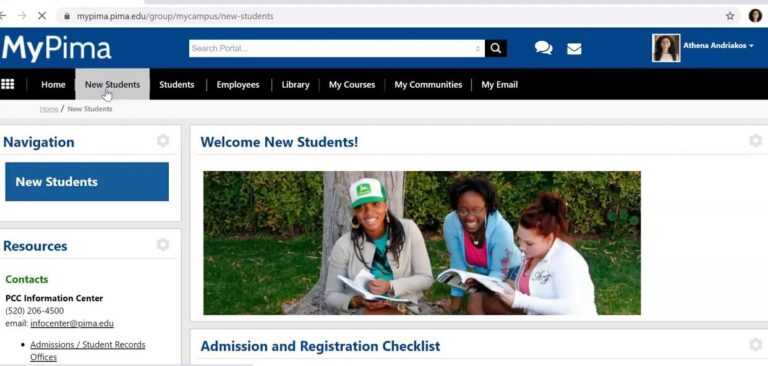Maximizing Efficiency with Alternative Delivery Channels
Welcome to a world where traditional banking methods are evolving rapidly, paving the way for alternative delivery channels to revolutionize the financial landscape. In this digital era, customers expect seamless and efficient services at their fingertips. Join us as we delve into the realm of maximizing efficiency with alternative delivery channels, exploring cutting-edge technologies, global opportunities in Islamic fintech, tackling money laundering threats, optimizing IT security, enhancing customer experience (CX) while adhering to KYC regulations, and utilizing big data analytics for risk assessment. Let’s embark on this journey together towards a more streamlined and secure future in banking!
Technologies Evaluation for Customer Satisfaction
In today’s rapidly evolving digital landscape, evaluating technologies is crucial for enhancing customer satisfaction. By carefully assessing the latest tools and platforms, businesses can streamline processes, improve user experience, and stay ahead of competitors.
One key aspect to consider is the ease of integration with existing systems. Seamless connectivity between different technologies ensures a smooth transition for both employees and customers. Additionally, prioritizing security features helps build trust and credibility among users.
Scalability is another critical factor in technology evaluation. Solutions that can adapt to growing demands without compromising performance are essential for meeting evolving customer needs. Moreover, leveraging analytics tools allows businesses to gather valuable insights into customer behavior and preferences.
By constantly evaluating and implementing cutting-edge technologies, organizations can create a personalized and seamless experience that drives customer satisfaction to new heights.
Leveraging Islamic Fintech for Global Opportunities
Islamic fintech is a rapidly growing sector that merges traditional Islamic principles with modern financial technology. By leveraging Islamic fintech, businesses can tap into a vast market of Muslim consumers seeking Sharia-compliant solutions. This niche presents global opportunities for companies looking to expand their reach and cater to the specific needs of this demographic.
With the increasing demand for Islamic financial products and services worldwide, embracing Islamic fintech can open doors to new markets and revenue streams. The integration of ethical practices and innovative technology allows businesses to uphold religious beliefs while staying competitive in the digital age.
Moreover, by incorporating principles such as transparency, fairness, and risk-sharing into financial offerings, organizations can build trust with customers who prioritize ethical banking practices. This not only enhances customer satisfaction but also fosters long-term loyalty within the Muslim community.
By embracing Islamic fintech solutions, businesses can explore untapped markets, drive innovation, and differentiate themselves in an increasingly crowded financial landscape.
Trade Based Money Laundering: Threats and Solutions
Trade Based Money Laundering (TBML) poses a significant threat to the global financial system, allowing criminals to disguise illicit proceeds through legitimate trade transactions. By manipulating invoices, misrepresenting prices, or falsifying shipping documents, individuals can move money across borders undetected. These deceptive practices make it challenging for authorities to identify and combat TBML effectively.
To address these threats, financial institutions must implement robust monitoring systems that can flag suspicious trade activities. This includes conducting thorough due diligence on customers involved in international trade and scrutinizing transaction details for any red flags. Collaboration between banks, regulators, and law enforcement agencies is crucial in detecting and preventing TBML schemes.
Moreover, leveraging advanced technologies such as blockchain and artificial intelligence can enhance the detection capabilities of financial institutions in identifying potential instances of TBML. By harnessing these tools effectively, organizations can strengthen their anti-money laundering efforts and mitigate the risks associated with illicit trade activities.
AML Watchlist Provider Selection Tips
When it comes to selecting an AML watchlist provider, there are key factors that financial institutions must consider. Assess the coverage and quality of the provider’s database. A comprehensive watchlist with up-to-date information is crucial for effective compliance.
Evaluate the provider’s data accuracy and reliability. Look for a track record of timely updates and minimal false positives to streamline your screening process efficiently.
Furthermore, consider the scalability and flexibility of the provider’s solution. Your chosen platform should be able to adapt to changing regulatory requirements and accommodate your institution’s growth seamlessly.
Prioritize user-friendliness and integration capabilities when choosing a provider. A seamless interface and compatibility with your existing systems will enhance operational efficiency in conducting screenings effectively.
By carefully considering these tips, financial institutions can ensure they choose an AML watchlist provider that meets their compliance needs effectively.
Optimization of IT Security in Alternative Delivery Channels
In today’s digital age, optimizing IT security in alternative delivery channels is paramount for financial institutions. With the rise of online and mobile banking, ensuring robust cybersecurity measures is non-negotiable.
Implementing multi-factor authentication, encryption protocols, and regular security audits are essential to safeguard customer data and prevent unauthorized access.
Continuous monitoring of network traffic and real-time threat detection can help mitigate potential cyber threats before they escalate. Investing in cutting-edge firewall systems and intrusion prevention technologies is crucial for staying ahead of evolving cyber risks.
Collaborating with industry experts and leveraging advanced security solutions can bolster the defense mechanisms against sophisticated cyber attacks. Educating employees on best practices for data protection and conducting regular training sessions can strengthen the overall IT security posture.
By prioritizing IT security optimization in alternative delivery channels, financial institutions can enhance customer trust, protect sensitive information, and uphold their reputation in an increasingly interconnected digital landscape.
Achieving Harmony: CX and KYC in Banking
In the fast-paced world of banking, achieving harmony between customer experience (CX) and Know Your Customer (KYC) processes is crucial.
Customers expect seamless interactions with their banks while also demanding stringent security measures to protect their sensitive information. Balancing these two aspects can be challenging but not impossible.
By implementing user-friendly interfaces and innovative technologies, banks can streamline KYC procedures without compromising on customer satisfaction. Enhanced digital processes can simplify identity verification while ensuring a frictionless experience for clients.
Utilizing automation tools in KYC checks can speed up the onboarding process, reducing wait times for customers. This not only improves efficiency but also enhances overall CX by providing a hassle-free journey for account holders.
Finding the perfect equilibrium between CX and KYC practices is essential in building trust with customers and staying competitive in the dynamic banking landscape.
Big Data Analytics for Risk Assessment in Banking
In today’s fast-paced banking landscape, the use of big data analytics is crucial for assessing risks and making informed decisions. By harnessing the power of vast amounts of data, banks can identify potential threats, trends, and patterns that may not be apparent through traditional methods alone.
Big data analytics enables banks to analyze customer behavior, detect anomalies in transactions, and strengthen fraud detection mechanisms. This proactive approach enhances risk assessment processes, allowing financial institutions to stay ahead of emerging risks and protect their assets effectively.
By leveraging advanced algorithms and machine learning capabilities, banks can enhance their ability to predict potential risks with greater accuracy. This predictive analysis empowers banks to take preventive measures promptly before any significant losses occur or regulatory compliance issues arise.
Incorporating big data analytics into risk assessment practices equips banks with valuable insights that drive strategic decision-making and ultimately strengthens their resilience against evolving threats in the digital era.
Understanding Online Banking KYC Process
When it comes to online banking, the KYC process stands at the forefront of ensuring security and compliance. KYC, or Know Your Customer, is a critical step in verifying the identity of customers to prevent fraud and money laundering.
In the online banking world, KYC involves gathering data about customers’ identity and assessing their risk profile through document verification and biometric authentication. This helps banks establish trust with their clients while adhering to regulatory requirements.
Online banking platforms use advanced technologies like AI and machine learning for efficient KYC processes. These technologies streamline customer onboarding by automating identity verification checks in real-time.
By understanding the online banking KYC process, both financial institutions and customers can benefit from enhanced security measures that protect against cyber threats while ensuring seamless digital transactions. It’s a pivotal aspect of maintaining trust in today’s increasingly digitized financial landscape.
Dealing with Money Laundering Risks in Mobile Banking
Mobile banking has revolutionized the way we manage our finances, offering convenience at our fingertips. However, with this convenience comes risks, particularly in the form of money laundering. Criminals may exploit mobile platforms to conduct illicit activities, making it crucial for financial institutions to stay vigilant.
To combat money laundering risks in mobile banking, robust security measures must be implemented. This includes multi-factor authentication, encryption technologies, and real-time monitoring of transactions for suspicious activity. By leveraging these tools effectively, banks can detect and prevent potential money laundering schemes before they escalate.
Educating customers about safe banking practices is also essential in mitigating money laundering risks. Encouraging users to set strong passwords, avoid sharing sensitive information online, and report any unusual account activity can help safeguard against fraudulent behavior.
Collaboration between regulatory bodies and financial institutions is key in developing comprehensive strategies to address money laundering threats in mobile banking effectively. By working together and staying proactive in enhancing security protocols, the industry can better protect both customers and the integrity of the financial system.
ADC Services & Products
With the rise of alternative delivery channels (ADCs) in the banking sector, financial institutions are expanding their services and products to meet the evolving needs of customers. ADC services encompass a wide range of offerings, including mobile banking apps, online portals, and even interactive ATMs.
These innovative solutions provide customers with convenient access to their accounts anytime, anywhere. From transferring funds to paying bills and managing investments, ADC services streamline banking processes and enhance user experience.
Moreover, ADC products like biometric authentication tools and secure encryption technologies ensure data protection and safeguard against cyber threats. By leveraging these advanced features, banks can improve security measures while offering seamless transactions for clients.
As technology continues to advance rapidly, financial institutions must stay ahead of the curve by investing in cutting-edge ADC services and products that elevate customer satisfaction levels while maintaining robust security standards.
Conclusion
Alternative delivery channels offer a plethora of opportunities for banks to enhance efficiency, customer satisfaction, and global reach. By leveraging technologies such as Islamic fintech, AML watchlist providers, IT security optimization, and big data analytics, financial institutions can stay ahead of the curve in today’s dynamic landscape. It is crucial for banks to strike a balance between providing seamless customer experience (CX) while also ensuring robust KYC measures are in place.
Dealing with money laundering risks in mobile banking requires proactive strategies and continuous monitoring. ADC services and products play a vital role in meeting evolving customer demands and expectations. By embracing innovation and staying vigilant against threats like trade-based money laundering, banks can navigate challenges effectively.
By understanding online banking KYC processes and implementing best practices across various alternative delivery channels, financial institutions can maximize efficiency while safeguarding against risks. Embracing these advancements will not only drive growth but also strengthen trust with customers worldwide.







